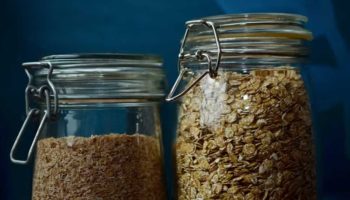If you don’t want to spend too much time behind the stove, pasta is always the easiest and fastest way to prepare a tasty and hearty meal. And then we have to admit that this transalpine dish is so delicious that some could eat it every day if it wasn’t so high in calories. Of course, anyone can boast of being able to cook spaghetti, but most always make the same systematic mistake: rinse pasta cold after cooking. We explain in this article why you should stop doing it!
Of course, it is important to drain the pasta after cooking. However, the debate remains whether or not to rinse them. Did you previously think that rinsing shortens the cooking time or avoids the unpleasant stickiness? We will prove to you that this is not necessarily the most effective method.
You don’t have to rinse the pasta after cooking
The advantage of cooking pasta is that it comes in all varieties, it adapts to most gourmet sauces, and it goes well with a variety of dishes. Moreover, they are easy to find in most restaurant menus, but also in supermarkets in various forms, fresh or industrial. Of course, preparing macaroni or penne at home is the perfect solution to feed a whole table. Hop, we bring the water to boil, we dip the pasta in it and after a few minutes they are al dente and ready to use. As a bonus, they require almost no ingredients: A little salt and olive oil is all it takes!
Except that almost all of us here have the automatic reflex to put them under the sink are still very hot. Good idea or bad idea? Well, according to some experienced cooks, it is not a good idea to leave your pasta under cold running water after cooking. Simply because in this way a thermal shock phenomenon occurs: you then remove all the starch, which turns out to be very useful for the next step, namely when you mix it with the sauce before serving it at the table. In fact, it is thanks to him that the sauce adheres properly to the pasta. For this reason, rinsing is unnecessary: you just need to let it drain in the colander.
Small tip: Great Italian chefs recommend pouring the drained pasta directly into the pan where the sauce is simmering. This will give you more flavor. In particular, avoid contact with the surrounding air so that they do not dry out and do not stick together. While stirring regularly and carefully, add a small amount of water, which will be very helpful for a thicker consistency.
But by the way, why do most people have the habit of rinsing pasta after cooking? Quite simply, so they don’t stick together. In fact, the main culprit is none other than the starch present in this food: it is what triggers this sticky and doughy effect. However, as we have just indicated, when you rinse your pasta after cooking, remove the starch, whose role, as explained above, is essential. Don’t forget that the type of wheat plays a role: soft wheat pasta, which is very economical, contains much more starch. It’s up to you to make the right choice when buying!



